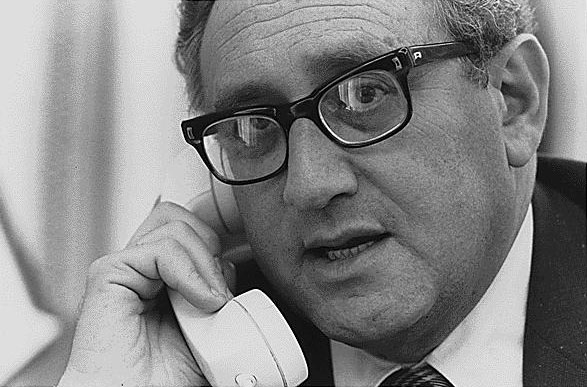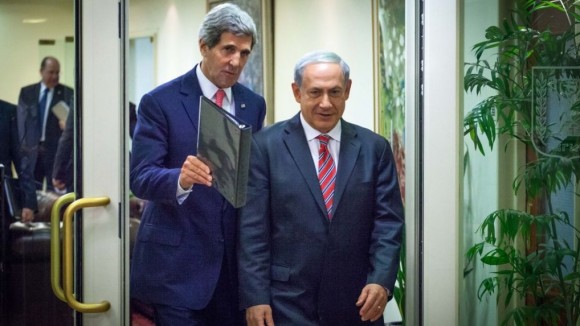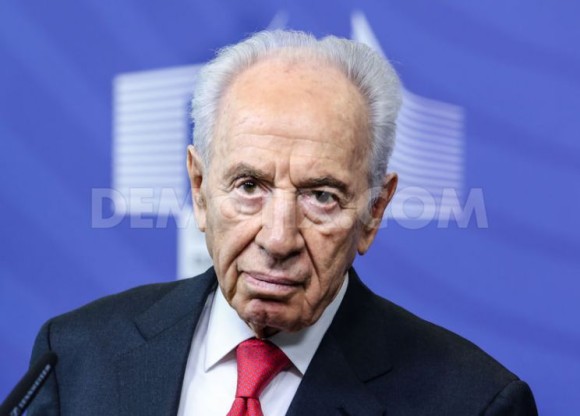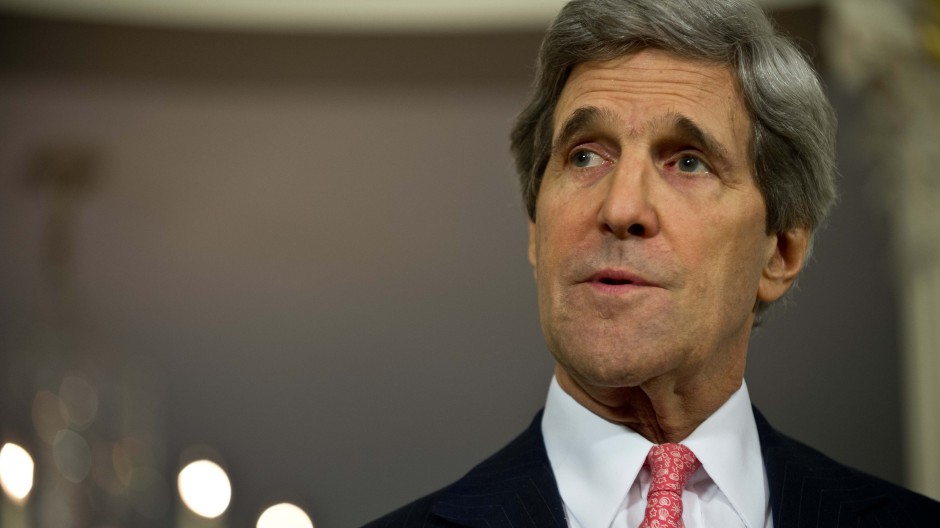John Kerry should be commended for his herculean efforts to break the Gordian knot of the Arab-Israeli conflict. Not since the days of Henry Kissinger and James Baker has a U.S. secretary of state done so much, so quickly, to try to advance the prospect of peace between Israel and the Palestinians.

Since the 1967 Six Day War, a succession of well-meaning intermediaries, from Gunnar Jarring and George Mitchell to Madeleine Albright and Condoleezza Rice, have attempted to build bridges of peace, but to no avail. Their shuttle diplomacy, launched with hope and fanfare, has usually fizzled, leaving the Middle East in much the same miserable condition as before.
Only Kissinger and Baker have defied the gloom.
In the wake of the 1973 Yom Kippur War, Kissinger hammered out important disengagement pacts that laid the groundwork for Israel’s peace treaty with Egypt and Israel’s detente with Syria on the Golan Heights. After the 1991 Gulf War, Baker was instrumental in convening the Madrid conference, which helped defuse the first Palestinian uprising and emboldened Israeli and Palestinian negotiators to push forward to the Olso accords.
Apart from these accomplishments, the landscape of the Middle East has been littered with the debris of failed peace missions, from the Arab League proposals in 2002 to the U.S. and European Union “road map” plan in 2003.
Kerry, the former chairman of the U.S. Senate’s foreign relations committee, knew what he was up against when he announced his intention to invest his prestige in an historic bid to coax Israel and the Palestinian Authority back to the negotiating table.
Thanks to the intervention of George W. Bush, the then U.S. president, the two sides conducted fairly substantive talks in 2007 and 2008. But after Benjamin Netanyahu’s right-wing government assumed office in 2009, the era of genuine negotiations ended.
Kerry’s predecessor, Hillary Clinton, tried to be a peacemaker, but fell short. Undaunted by her failure, Kerry plunged head-long into the fray. Due to his dogged belief in progress, not to mention his persistence, Israel and the Palestinian Authority launched bilateral talks last July. There have been more than 20 formal sessions since then, and Kerry has made nearly a dozen trips to the region to keep the momentum going.

As expected, Israel and the Palestinians are still far apart on the most contentious issues, from borders to refugees. But Kerry remains game. By all accounts, he will soon unveil a non-binding framework of the architecture of a fair and balanced peace agreement. Judging by the leaks, the Kerry Plan is a model of compromise, giving Israel recognition, peace and security and the Palestinians statehood.
Kerry should be thanked fulsomely for his commitment to breaking a long-simmering dispute and trying to foster stability in the Middle East. But in Israel, short-sighted and ungrateful politicians who do not even remotely grasp the meaning and necessity of territorial compromise have instead ferociously attacked his ideas as well as his intentions and integrity.
Defence Minister Moshe Yaalon has described his mission as “inexplicably obsessive” and “messianic,” claiming that his proposed security arrangements are “not worth the paper it is printed on.”
Kerry, having correctly warned that Israel faces an “increasing delegitimization campaign” and having wisely pointed out that the current status quo in the West Bank cannot be sustained, has angered still others in the Israeli cabinet, from Netanyahu on down.
For crass political reasons, Netanyahu has taken exception to Kerry’s accurate analysis of Israel’s potentially dire situation, as if Kerry himself had joined the boycott, divestment and sanctions camp.

Strategic Affairs Minister Yuval Steinitz has called Kerry’s comments “offensive and intolerable.” Worse still, Economy and Trade Minister Naftali Bennett, who openly opposes a two-state solution, has incredibly accused Kerry of incitement and of serving as a “mouthpiece” for antisemites who want to isolate and destroy Israel.
Fortunately, some Israeli politicians appreciate Kerry’s hard work and recognize the benefits that can accrue from peace.
“We thank him for his efforts,” said President Shimon Peres, who has prudently urged Israeli and Palestinian leaders to make “historic decisions” in order to resolve a conflict that has convulsed the region for at least a century.

In this spirit, Finance Minister Yair Lapid has warned that Israel will suffer financially if it fails to sign a peace agreement with the Palestinian Authority. “He (Kerry) deserves appreciation for investing countless hours … to facilitate an agreement between us and the Palestinians in spite of the difficulties,” he said.
Justice Minister Tsipi Livni, Israel’s chief negotiator at the talks, has also sounded a warning, saying that Israel will face global boycotts and “the kind of isolation (apartheid) South Africa did.”
Even Foreign Minister Avigdor Liberman, a hawk and a settler, has come out in favor of Kerry’s diplomacy, frankly saying that “any alternative proposals brought forward by the international community will suit us much less.”
Of course, the United States, Israel’s main ally and benefactor, has not reacted kindly to critics like Yaalon and Bennett.
Susan Rice, President Barack Obama’s national security advisor, has rightly described the ill-conceived attacks on Kerry as “totally unfounded and unacceptable.” In a number of tweets, she wrote that Kerry’s support for “Israel’s security and prosperity are rock solid.”

For Israel, a moment of truth is dawning.
Netanyahu claims he supports a two-state solution. If he’s sincere, he will embrace the Kerry Plan, which is in Israel’s long-term interests. If he’s bluffing, which may well be the case, he will try to find a way to gut it while ostensibly supporting it.
If Netanyahu is really serious, he will remove Bennett and his ilk from the cabinet and replace them with representatives of the Labor party, which believes in the possibility of peace with the Palestinians, Hamas notwithstanding.
Bennett and company are Greater Israel zealots whose crazy policies will either turn Israel into a non-democratic Jewish state at war with all its neighbors, or a binational state that will spell finis to the Zionist dream.
Let Netanyahu choose. He cannot postpone this existential decision any longer.
